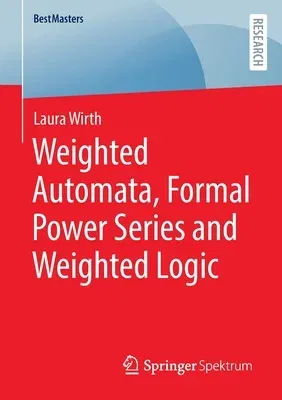Laura Wirth
(Author)Weighted Automata, Formal Power Series and Weighted Logic (2022)Paperback - 2022, 14 October 2022

Qty
1
Turbo
Ships in 2 - 3 days
In Stock
Free Delivery
Cash on Delivery
15 Days
Free Returns
Secure Checkout

Part of Series
Bestmasters
Print Length
190 pages
Language
English
Publisher
Springer Spektrum
Date Published
14 Oct 2022
ISBN-10
365839322X
ISBN-13
9783658393229
Description
Product Details
Author:
Book Edition:
2022
Book Format:
Paperback
Country of Origin:
NL
Date Published:
14 October 2022
Dimensions:
21.01 x
14.81 x
1.19 cm
ISBN-10:
365839322X
ISBN-13:
9783658393229
Language:
English
Location:
Wiesbaden
Pages:
190
Publisher:
Series:
Weight:
272.16 gm